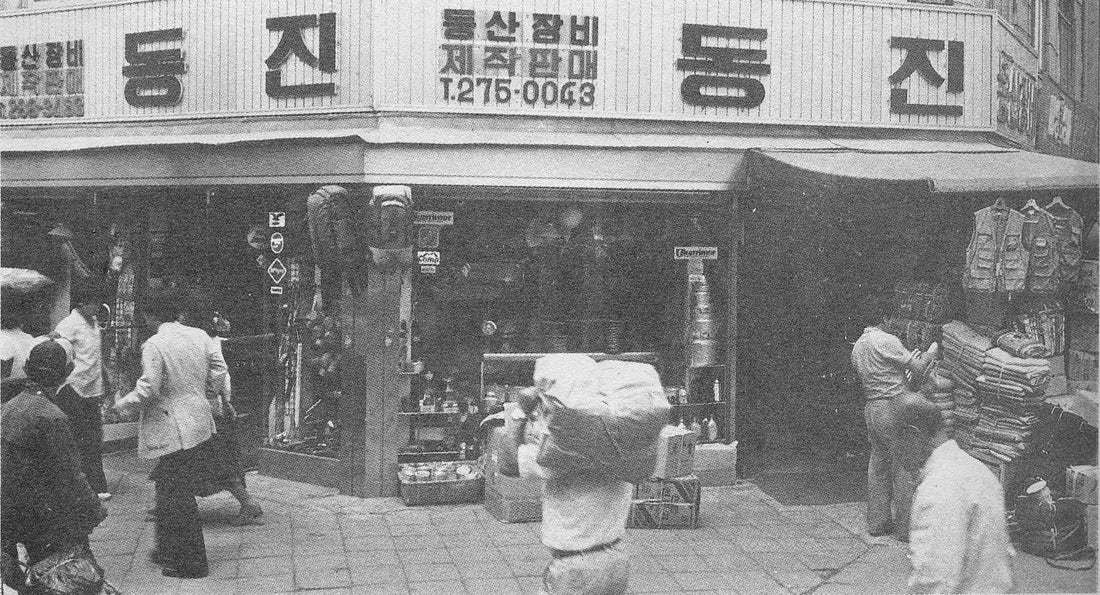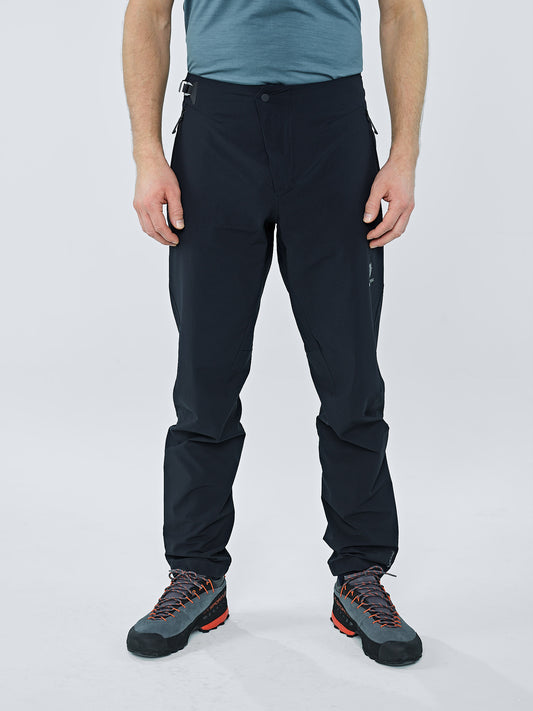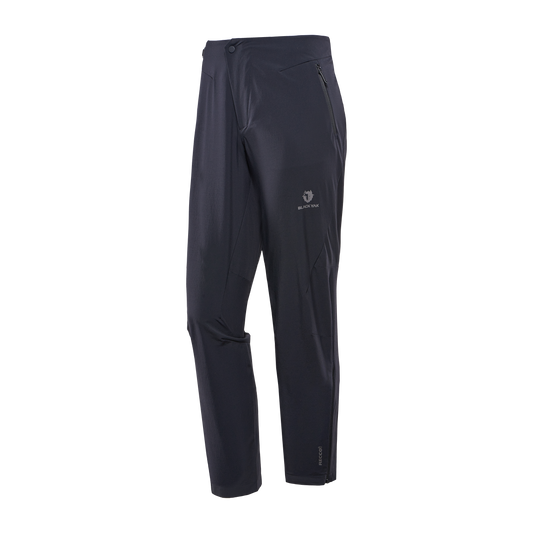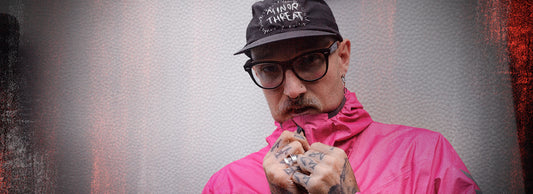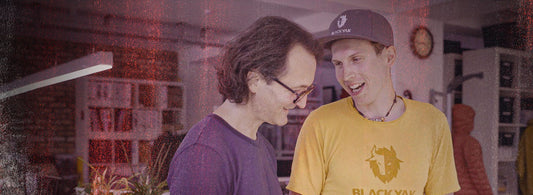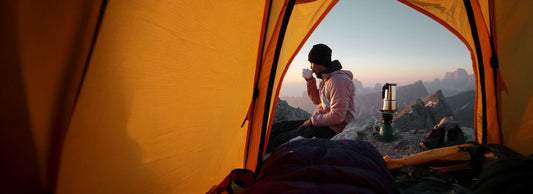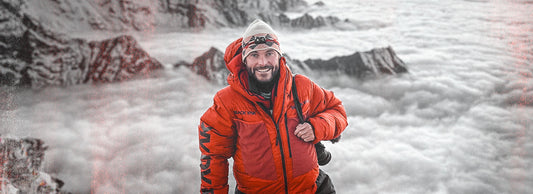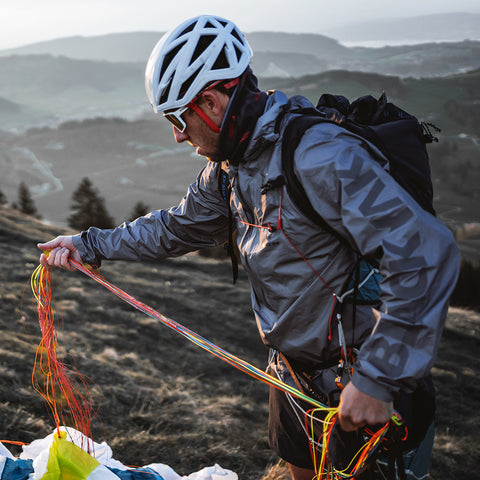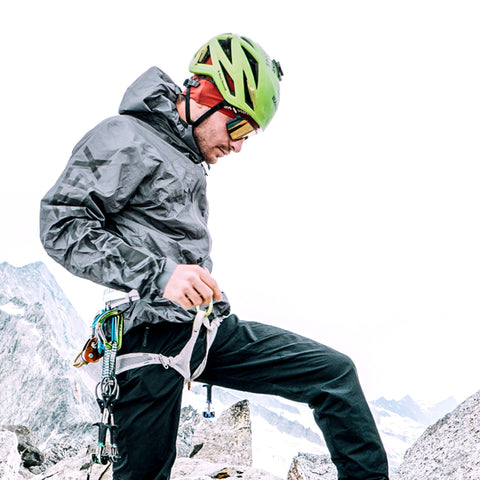BLACKYAK Group is celebrating its 50th anniversary. The company that started in a small store in Jongno 5-ga, Dongjin-sa Seoul, Korea, has evolved into a company that has made a name for itself in the global market after half a century of history.
BYN BLACKYAK's 50 years have been anything but constant. We have gone through the ups and downs of the Korean economy and the changes in the outdoor industry, persevering, overcoming many crises, but always remembering the mountains and nature that have made us what we are today. We learned to go with nature in my hometown of Jeju, and the vastness of the Himalayas gave us the strength to pursue our life dreams. Since then, we have walked step by step in coexistence with nature, aiming to protect people and nature by offering innovative products, supporting active living, and accompanying people in their lives. As we prepare for the future, we at BYN BLACKYAK take a look back at our 50-year journey.
Founder/Chairman Tae Sun Kang

Tae Sun Kang
On Jeju Island, where Mount Hallasan is located, is Tae Sun Kang's hometown where he grew up with his mother and two siblings. Mothers on Jeju, who were responsible for household chores, field work, sea work and child rearing, worked hard.
Kang's mother (widow), who raised her three children with her in-laws, was also overwhelmed with work. As the breadwinner of the family, his mother was financially independent and self-sufficient. Thanks to his mother's support, Kang was able to graduate from Yerae Elementary School and Jungmun Middle School and was able to study at Ohyeon High School in Jeju City. The difficulties of the time can be seen from the fact that of the graduates of Yerae Elementary School, eight students attended middle school and only six students attended high school. Even in high school, Kang climbed the island's local mountain at every opportunity. Hallasan, is the highest mountain in South Korea at 1,950 meters and is significant in many ways to the history of Korean mountaineering.

Ko Sang-don, who was the first Korean to climb Everest on September 15, 1977, also trained on Hallasan in winter. Tae Sun Kang also frequently climbed Mount Halla during his school years, but only in the summer months. In the winter, he had neither the equipment nor the courage to face the massive snow masses.
Then, in the winter of 1969, an opportunity arose. In the year he graduated from high school, a Himalayan expedition from Jeju came to train on Hallasan. Kang volunteered to be a porter and joined the team. In winter, it was very snowy on Hallasan. Despite the snowstorm, the climb began at dawn. The group trudged through chest-deep snow and finally reached the refuge at nightfall.

This was the base camp, Kang shivered all night as it was his first night in the mountains in winter. Equipped only with an army ski jacket and an army blanket, he tried to survive the night. Mount Halla with its snowy landscape was beautiful, but after spending the night shivering, Tae Sun Kang felt like he was going to freeze to death. He thought he would turn back in the morning, but when the sun came up, he changed his mind. The team climbed the Wanggwan burial trail and were snowed in up to their chests, but the stunning snowy scenery made Kang feel like he was seeing Hallasan for the first time. At the summit of Hallasan, the wind had frozen the snow surface, and Kang was able to try crampons for the first time. All team members went in a rope team with crampons to reach the summit. Hallasan was a snowy land in winter. It was strange to see the mountain covered in snow that he had climbed so many times.
The beginnings
In the early 1970s, most of the mountaineering equipment was military goods. Kang was frustrated by the poor quality of the equipment and set out to make his own. He had no money, but his sincerity and enthusiasm for the business, which he started at 5 a.m. and didn't close until 12 p.m., got him a loan. With the help of the owner of the clothing store where he worked and his aunt, he raised the needed capital. He set up store with minimal expenses. The 24-year-old entrepreneur's start was modest. He couldn't afford a new company sign, so he used the old one. But he took up the challenge by reinterpreting "Dongjin," which means "going east," and a small step became a big challenge. The small store in Jongno 5-ga has been a sacred place for regular customers of BLACKYAK GROUP for more than 40 years.

In 1975, Dongjin Mountain's first domestic product, the Samdae backpack, was launched. The Samdae backpack is the first domestic backpack of the US Army and was developed in four sizes (20L, 25L, 30L and 38L).
In the three years since its establishment, Dongjin Mountain has grown and established itself as a national wholesaler. Despite the increasing workload and physical exhaustion, Tae Sun Kang opened the store door at 6 in the morning. He quickly realized that the name had to be on the products. At that time, there were few domestic brands, and hardly anyone knew even famous foreign brands. Since Kang believed in the potential of the outdoor market with Dongjin Mountain, they started to produce themselves.
The first brand called "Giant" was born.
Dongjin Mountain began manufacturing backpacks under the Giant brand in its own factory. Initially, the company supplied products to amateur mountaineering clubs and waited for the market to respond. The response failed to materialize, but the company persevered and increased its sales volume. Later, in 1976, the company pushed production of various mountaineering products such as backpacks, tents, sleeping bags and footwear under the new trademarked name "Pro Giant."

To distinguish itself, the company registered a trademark with an eagle symbol above the giant letters in July 1987. Thanks to the distinctive name and reliable quality, PROGIANT quickly established itself on the market.
For 17 years, the company expanded steadily. However, at the crossroads of change, the company decided to build a new building and move its headquarters. On December 16, 1989, the relocation and opening ceremony took place.

Established in 1990, Dongjin Leisure Department Store was the first and largest department store specializing in mountaineering and leisure equipment at that time.
In 1993, Chairman Tae Sun Kang decided to climb the mountains in the Himalayas. He had sponsored several expeditions since the late 1970s, but this was the first time he himself traveled to the Himalayas to climb.

In November 1993, a distribution license agreement was signed with Gore in the United States. At that time, there were some opinions about whether it was necessary to pay high royalties and use Gore-Tex instead of domestic fabrics. However, Tae Sun Kang boldly decided to use the best material on the market. Gore-Tex had a reputation among professional mountaineers for being waterproof, moisture-permeable, cold-resistant, and windproof. By using Gore-Tex, Dongjin Leisure has paved the way for professional mountaineers to choose domestic mountaineering clothing instead of foreign ones.
The origin of BLACKYAK
It was in Tibet that Tae-sun Kang first encountered a black yak.
After a whiteout on Cho Oyu, Tae Sun Kang was rescued by a black yak. It led him from high altitude back to safety, to base camp. This was the birth of BLACKYAK".

In December 1995, the national brand BLACKYAK was born, a Himalayan-inspired brand with high-tech materials. It was not just about being made in Korea. At a time when colorful mountaineering clothing was all the rage, BLACKYAK caused a stir by introducing the color black. Inspired by the yaks Kang encountered in Tibet, the color black was applied to clothing design.
In 1993, shortly after the establishment of diplomatic relations between Korea and China, Dongjin began preparations to enter the Chinese market.
There were many obstacles to overcome, including the cultural differences between Korea and China and the untapped outdoor market. After an unsuccessful attempt to establish a production facility in Dalian, China, a production line was manufactured locally in Tianjin starting in 1996.
In January 1998, the first BLACKYAK store opened in Beijing, the heart of China. It was the first outdoor specialty store in China.
In July 2002, when the black color trend led by BLACKYAK took over the outdoor market, Mountia, a specialty outdoor brand, was born. Mountia is a combination of 'Mountain', 'Utopia' and 'Mania'. It means "the way to enjoy the mountains, the joy of going to the mountains". As a partner of BLACKYAK, Mountia entered the big discount stores with the brand philosophy of offering high quality products at low prices and was well received by consumers due to its low prices and high quality fabrics.

In the early 2000s, the outdoor market boomed. The number of affluent customers increased, while existing suppliers and new entrants competed fiercely. To respond quickly to market changes, Dongjin quickly began developing new products. The company needed to focus on product planning, marketing and monitoring. To ensure new designs and better functionality, the company established a research and development center in 2005.
From October 2007, Dongjin took over the import and distribution (for Korea) of the British outdoor brand Karrimor. Known for its iconic logo resembling the Union Jack of the British flag, Karrimor had long been known as a popular luxury brand in the UK.

Globalization of BLACKYAK
On 10 January 2010, Dongjin re-launched. The existing Dongjin Leisure Co, Ltd. was renamed BLACKYAK Co, Ltd.
On November 3, 2011, BLACKYAK opened a branch office in Shanghai, where the company established itself as a premium brand in China when it entered the market. On the 10th of the same month, BLACKYAK opened a branch in Vietnam, taking a step towards the global market.
On August 23, 2012, the Yongin Logistics Center was completed in Korea. The largest logistics center in the outdoor industry, with a total area of about 30,000 m2. One basement and four floors above ground are equipped with advanced facilities and excellent transportation access. An automatic plant system and a state-of-the-art logistics automation system have been introduced, which can process goods from receipt to distribution to release and delivery within 24 hours.

On August 25, 2012, BLACKYAK became the first Korean outdoor brand to open its first store in Kathmandu, Nepal.

BLACKYAK, which introduced its children's collection in 2011, officially launched "BLACKYAK KIDS" in 2013, the first brand in the outdoor industry exclusively for children and opened its first store on August `23.

At the ISPO 2013 Awards in Munich, the world's largest sporting goods trade show, a BLACKYAK product was named Asian Product of the Year. In a field where global brands showcased their best products, BLACKYAK's design and technology were recognized. In 2016, BLACKYAK won a total of eleven ISPO Awards at the global, as well as ISPO Asia. Since the Asian Product of the Year in 2013, BLACKYAK has won a total of 26 awards through 2020. This is the most awards in history for a single brand to date.

After establishing itself in the domestic market, BLACKYAK turned its attention to Europe. BLACKYAK opened an office in Germany in 2014. Since 2019, the company has had its own research and development center, PRODUCT LAB, in Munich. Here, developers, designers, and climbers work together to discuss materials and finalize designs to create products that climbers can trust.

In 2013, BLACK YAK established the BLACKYAK Tae Sun Kang Sharing Foundation and the BLACKYAK Tae Sun Kang Scholarship Foundation to systematically promote social activities for the next generation and develop leadership for a global company while thinking about the future.
In 2014, BLACKYAK moved for the third time after six years. The new building was officially named "BLACKYAK Building". With 7 floors above ground and 4 floors below ground (14,121㎡), the BLACKYAK Building is used by both BLACKYAK and Dongjin Leisure. On the lower floors, brand stores are arranged to present various outdoor areas at a glance.

In January 2013, BLACKYAK Korea launched Mountain Book, the beginning of its outdoor community platform, and reshaped it into BLACKYAK Alpine Club (BAC). BAC has nearly 400,000 members and motivates Koreans to actively engage in mountain sports and explore the mountains of Korea.
In 2015, BLACKYAK acquired NAU, an American premium lifestyle outdoor brand whose philosophy of preserving ecosystems and practicing sustainability aligns with BLACKYAK's ethos.
The opening ceremony of the "NAU HOUSE" in Gangnam District, Seoul, was themed "Unfuck the nau," borrowing from NAU's founding slogan "Unfuck the world."

Through a Korean licensing agreement with premium Japanese golf brand Heal Creek, BLACKYAK positions itself for a variety of outdoor lifestyles beyond the mountains.
Sustainability has been further integrated by researching environmentally friendly products, creating a culture of energy conservation, and conducting campaigns and social activities aimed at the coexistence of nature and people. In recognition of these efforts, the company was awarded the Prime Minister's Commendation at the 2018 Korea Green Management Awards. It was the first Korean fashion and textile company to receive this award.
The BLACKYAK Alpine Club Center at the foot of Mount Bukhan opened on April 27, 2019. The former underground skating rink has been transformed into an adventure space for climbing for adults and children, while a store and café are located on the first and second floors, and seminar and educational spaces on the third and fifth floors.

Through a business agreement with SM Group's chemical fiber manufacturer, TK Chemical, BLACKYAK launched the first environmentally friendly product in Korea made from recycled fiber "K-rPET". Under the project, BLACKYAK collects the disposable plastic bottles used in Korea, removes impurities, and processes the rice-grain-sized chips that form the raw material for the fiber. The "threads" are then spun into fabric and dyed to make the product. The process can recycle 15 plastic bottles. The company has expanded its product capabilities with its self-developed "TRI-ECO" material, which uses recycled polyester yarn made from K-rPET recycled fibers, the environmentally friendly "Sorona Cotton Like" material made from corn, and functional viscose fabric.

On April 26, 2022, the "Yak Village" in Jeju Isaland, a rural tourism and recreation complex, opened for the first time. Built on an area of around 100,000 m2, the Yak Village aims to restore the balance of life and provide people with new inspiration.

The Global Sustainable Leaders 100 program, organized by the UN SDGs (Special Consultative Status of the UN Economic and Social Council), annually recognizes 100 global sustainable companies, brands, and individuals. The event, which began in 2019 and held for the fourth time in 2022, saw CEO Tae Sun Kang named to the list for the third consecutive year and selected as one of the "20 Global Sustainable Social and Environmental Leaders" for the second year in a row.
In addition to all its business decisions and developments, the BLACKYAK GROUP has been involved in a wide range of social projects around the world for the past 50 years. Among them, garbage collection projects on domestic mountains and in the Himalayas ("GreenYak Clean Mountain" regionally since 2013, "Himalayan Clean Mountain" since 2018) to care for and preserve the mountains. From 2014 to 2022, BLACKYAK supported socially isolated and needy seniors with regular boxes filled with functional products and daily necessities.
In Nepal, after a worshipping earthquake, BLACKYAK supported people with relief goods, donations, and on-site assistance. A charity hospital "Toto White Hospital" was opened to provide medical care, during the difficult time, on site.

The BLACKYAK Tae Sun Kang Sharing Foundation supported the reconstruction of a school that was destroyed by the earthquake and provided teaching materials such as textbooks and classroom equipment.

In addition to many large and small projects, BLACKYAK is always committed to conservation nature and people around the world.
And for decades, BLACKYAK has supported athletes who dream of achieving the impossible on the world's steepest rock faces and highest peaks.

-
MEN´S DANGI OUTDOOR PANTS
The DANGI PANT is a lightweight and comfortable all-round outdoor pant made o...Regular price 190,00 €Regular priceUnit price per

